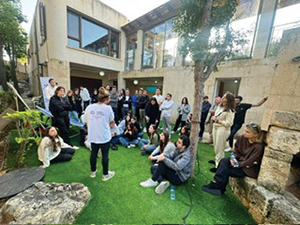
Rabbi Uriel Vigler is originally from Zimbabwe—although when he lived there, it was called Rhodesia. His parents were Chabad shlichim (messengers living in an outpost), stationed there for many years. They eventually moved to Johannesburg, South Africa, but when the revolution took place, they moved to New York City. Rabbi Vigler married his wife, Shevy, and has been living on the Upper East Side of New York City for the past 20 years. In 2005, Rabbi Vigler and Shevy started the Chabad Israel Center of the Upper East Side.
In 2010, Rabbi Vigler and Shevy came up with the idea to try bringing joy to soldiers who had been seriously wounded while serving in the IDF. They brought 10 Israeli soldiers on an enjoyable trip to New York City, Washington D.C. and Niagara Falls. An acquaintance from Europe gave them a check to cover the entire trip. It was a great success. “We are Chabad—we are mission-driven,” said Vigler. “We get ideas and jump into them. We started Belev Echad just by bringing a group of soldiers to New York. It catapulted into this enormous organization.”
Shevy, who co-founded Belev Echad added: “It’s very easy to live a comfortable life here without thinking about those people who are fighting our fight. Initially, we brought soldiers here to bridge that gap and to allow people here to give back.”
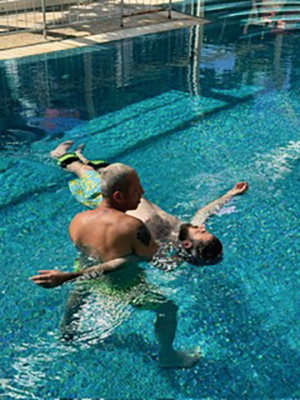
During the New York portion of that original trip, the Viglers informed their Upper East Side community that the soldiers would be eating Friday night dinner at the Chabad; 500 people showed up on Friday night to greet them and talk to them.
That evening, one soldier shared that her mother had been killed in the same attack that had wounded her, and her father had been seriously wounded as well. As she lay in the hospital bed for many months, the hardest part wasn’t her physical pain, but that she felt so alone. Her mother wasn’t there to hug her, and her father couldn’t be there for her either, since he was in critical condition himself. The soldier emotionally explained to the crowd that this night, seeing these Jews coming to express their appreciation and support made her feel like she was finally receiving the hugs that she needed back then. Hearing this, Rabbi Vigler realized just how therapeutic this trip was for the soldiers. “It was my ‘aha’ moment,” he said.
Rabbi Vigler, his wife and a small staff received funding to then run annual trips for wounded soldiers until 2014. In 2014, after Operation Protective Edge, they received enough funding to run the trips three to four times a year, since there were suddenly vastly more wounded soldiers. The trips have become more adventurous, and now they travel to Miami, California, and even South Africa. They also developed a program in which they send the soldiers to speak at American college campuses across the U.S. This benefits both the soldiers and the Jewish college students.
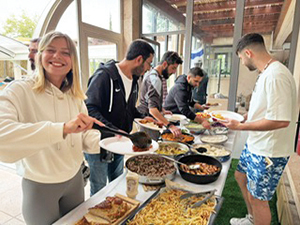
Eventually, the Viglers realized that the trips and speaking engagements were not enough. They built a facility—the Belev Echad “house” in Israel. The house acted as a center for the wounded soldiers to relax, eat hot meals and form a community with others like them. Belev Echad’s house is located in Kiryat Ono—a town 20 minutes from Tel Aviv.
As soon as the war started this year, the Belev Echad team went into overdrive. They were among the first team to visit the wounded soldiers in Israeli hospitals. “We were created for this,” explained Rabbi Vigler. “Overnight, we converted our house into a treatment center. We tripled our staff, we built ramps and added rooms. The facility now includes physical therapy, hydrotherapy (with a swimming pool), rooms dedicated to activities such as martial arts, and a cafeteria serving three meals a day.
“Aside from the various therapies,” Rabbi Vigler added, “the soldiers can just spend time with one another there. They can look in each other’s eyes, and see that they are not alone.”
Belev Echad’s budget has quadrupled in the past months. Since October 7, the organization has been actively caring for 1,500 soldiers wounded in the war.
“Ninety-nine percent of our staff in Israel are wounded soldiers themselves,” explained Rabbi Vigler. “They were in hospital beds themselves a couple of years ago. They can say, ‘I see that you lost a hand; I also lost a hand.’ Or ‘I understand you were shot in the stomach. I was shot in the stomach as well.’
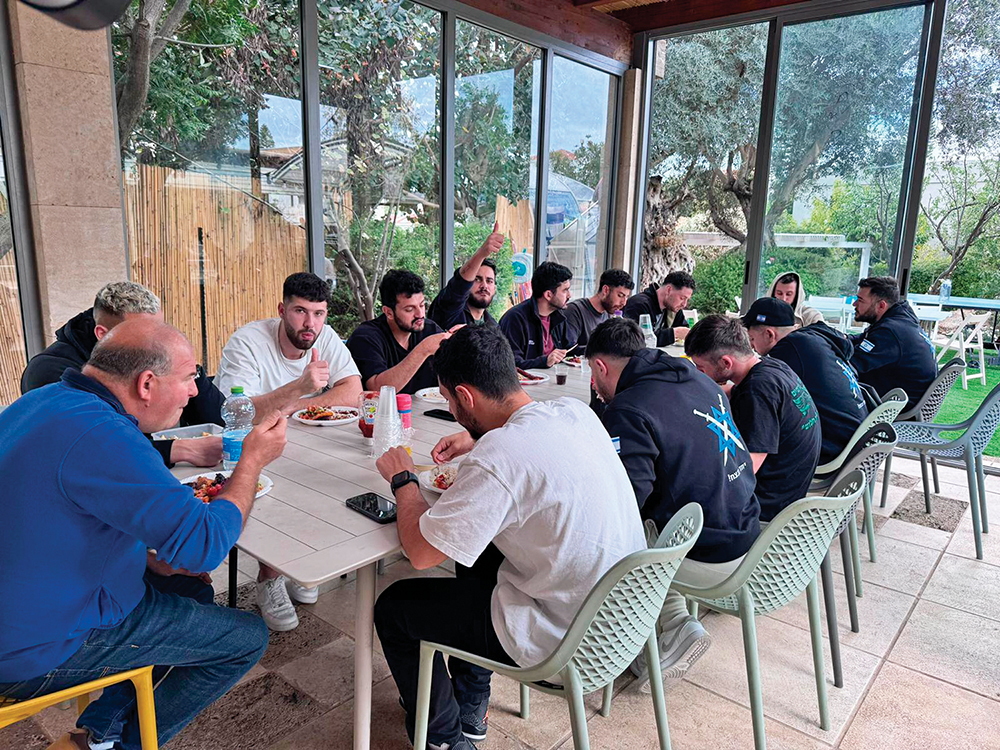
One of Belev Echad’s main focuses in Israel is helping the veterans get jobs. The organization provides computer classes and various training programs to set the soldiers up for professions. A vast network of mentors and professionals are connected to Belev Echad, all interested in getting these soldiers into the workforce.
The Lubavitcher Rebbe, Rabbi Menachem M. Schneerson, zt”l is quoted as having said to wounded IDF veterans: “A person that is deprived of a limb or a faculty—this itself indicates that God has given him special powers to overcome the limitations this entails, and to surpass the achievements of ordinary people. You are not ‘disabled’ or ‘handicapped,’ but special and unique, as you possess potentials that the rest of us do not.”
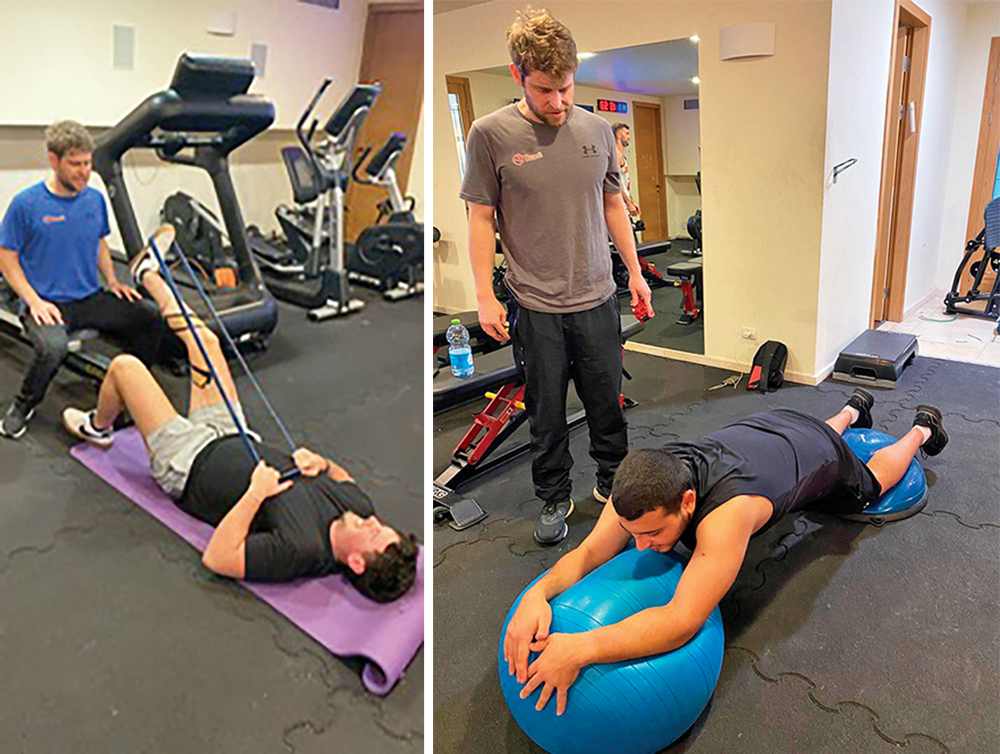
“We don’t view them as handicapped or people who can’t,” said Rabbi Vigler. “We introduce them to mentors and jobs, so that they can be productive members of society.”
Matan Janach is an officer in the IDF Artillery Corps who was severely injured in 2012. He said, “I studied building engineering. Sharon [a Belev Echad staff member] connected me to the CEO of Shatit [a construction company]. At 8 a.m. the day after my interview, I already started working [in engineering].”
Sahar Dahan, a female wounded veteran, recalled: “They set me up to work at a construction company where I am in charge of their safety app. Thanks to this organization, I went through a major rehabilitation process, and I’m in a good place, thank God: working, learning, and the sky is the limit.”
“I would love nothing more than to shut down Belev Echad today,” Rabbi Vigler concluded. “I want there to be no more need for this organization—no more wounded soldiers. But until that happens, we will do everything we need to do to help them.”
For more information, visit: https://belevechad.nyc
Dassi Lewis is a staff writer at The Jewish Link.









